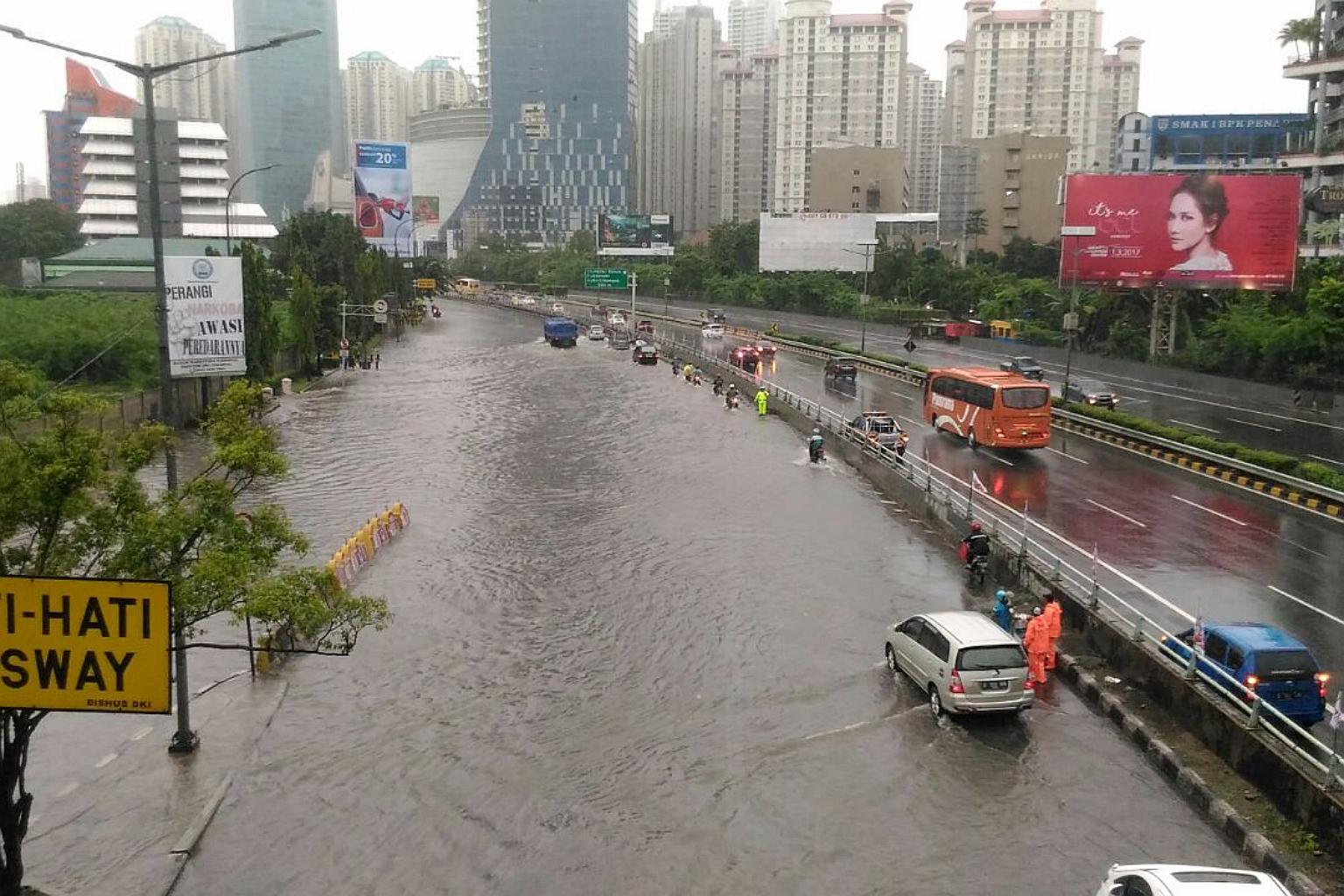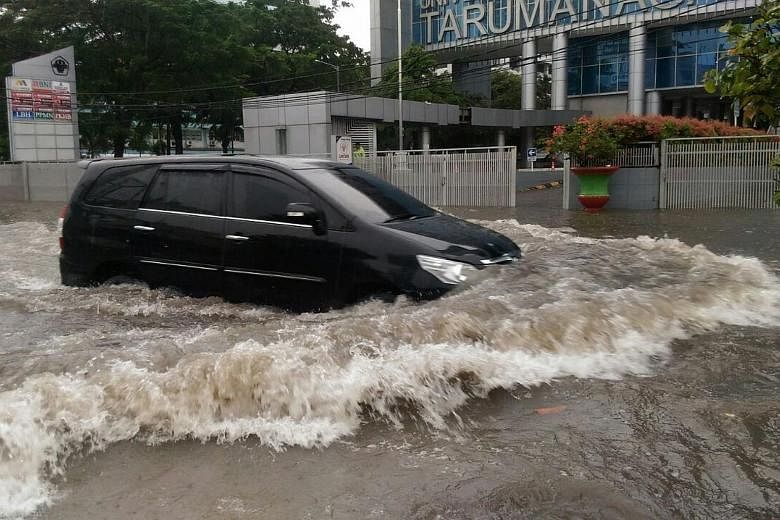JAKARTA - Heavy overnight rain flooded thousands of homes and roads in Jakarta, with some areas inundated with water as high as 1.5m on Tuesday (Feb 21) morning.
The high water levels forced many workers to stay home, with some schools temporarily closed for safety reasons.
"The floods hit the city after the drainage system was not able to accommodate what was a very large inflow of water," said Dr Sutopo Purwo Nugrowo, spokesman for Indonesia's disaster management agency (BNPB).
As of Tuesday morning, the BNPB has received more than 400 reports of flood incidents from residents in Jakarta and the areas on the suburbs, seeking assistance which includes deployment of rubber boats and evacuation tents.
There are at least 54 "main flooded spots", mostly in the eastern and northern parts, said Dr Sutopo.
However, some areas like Kampung Pulo in the eastern part of the city, which usually suffers the worst of floods when it rains heavily, fared better. This is because the municipal government conducted major dredging work in the nearby Ciliwung River and relocated illegal squatters on the river banks to subsidised flats.

The issue of flooding has always been heavily politicised, and news of flooding in the city will affect the re-election of Jakarta governor Basuki Tjahaja Purnama, who had campaigned hard on his plans to resolve the problem for residents living in flood-prone areas.
A key plank of his solution, which is to resettle squatters along riverbanks as he embarks on a river normalisation exercise, has been attacked by his opponent Anies Baswedan in the run-off to the election in April.
Mr Anies, who was education minister until he was dropped during a Cabinet reshuffle last year, said the floods were a result of an ineffective mitigation plan by the current Jakarta administration.
"This must be immediately addressed... if the plan is not going well, the normalisation plan won't be effective" he said in a Tempo news report on Tuesday, which was accompanied by a photo of Mr Anies in waist-high water talking with residents during his visit to Cipinang Melayu in East Jakarta on Monday.
But Mr Basuki, who is standing trial for insulting Islam while running for re-election, has stood by his track record of dealing with flooding in the city. He said when he came into office as deputy to then Jakarta governor Joko Widodo in 2012, there were 2,200 flood-prone areas in the city. "Last year, the number fell to 400," he said on Monday.
He also explained that the flooding in East Jakarta was mainly due to a delay in the river normalisation project, which is now 40 per cent completed, reported The Jakarta Post on Tuesday. "Nonetheless, we have already seen a good deal of improvement."

Jakarta, a coastal city, is crisscrossed by as many as 13 rivers and these often burst their banks during the monsoon season, causing massive flooding in densely populated communities.
Experts have noted that most of the North Jakarta district, including the massive seawall designed to protect it, is sinking at an estimated 25cm a year. Ground subsidence and high sea tides which push waters back into the city when it rains heavily have caused Jakarta to see annual floods, with the peaks often being in February.
In the Jakarta Great Flood of February 2007, more than two-thirds of the capital were under water after it rained non-stop for three days. Waters rose as high as 7m in some areas.
A special report in The Guardian last year said that Jakarta is sinking because of subsidence. The city does not pipe in enough drinkable water and so residents rely largely on wells that extract water from shallow aquifers, which causes the land above it to collapse.


